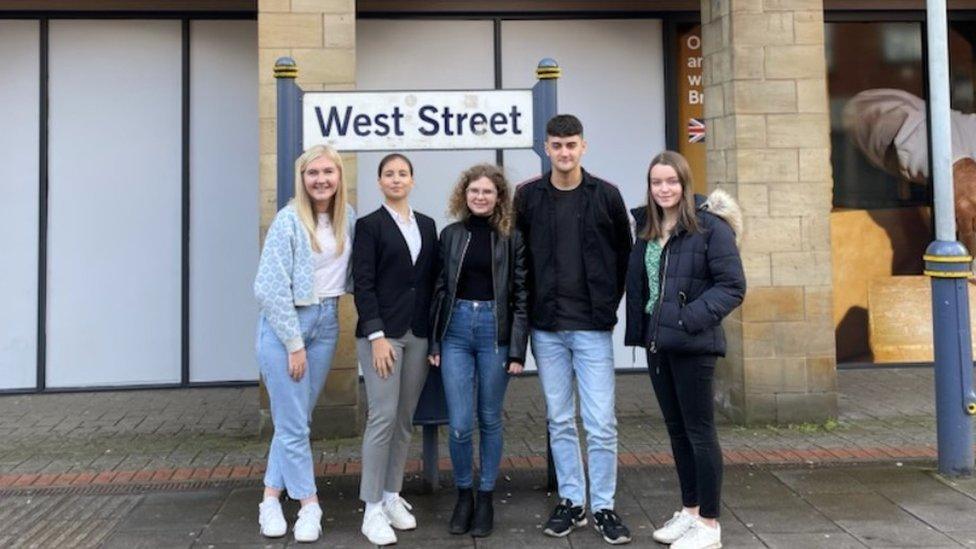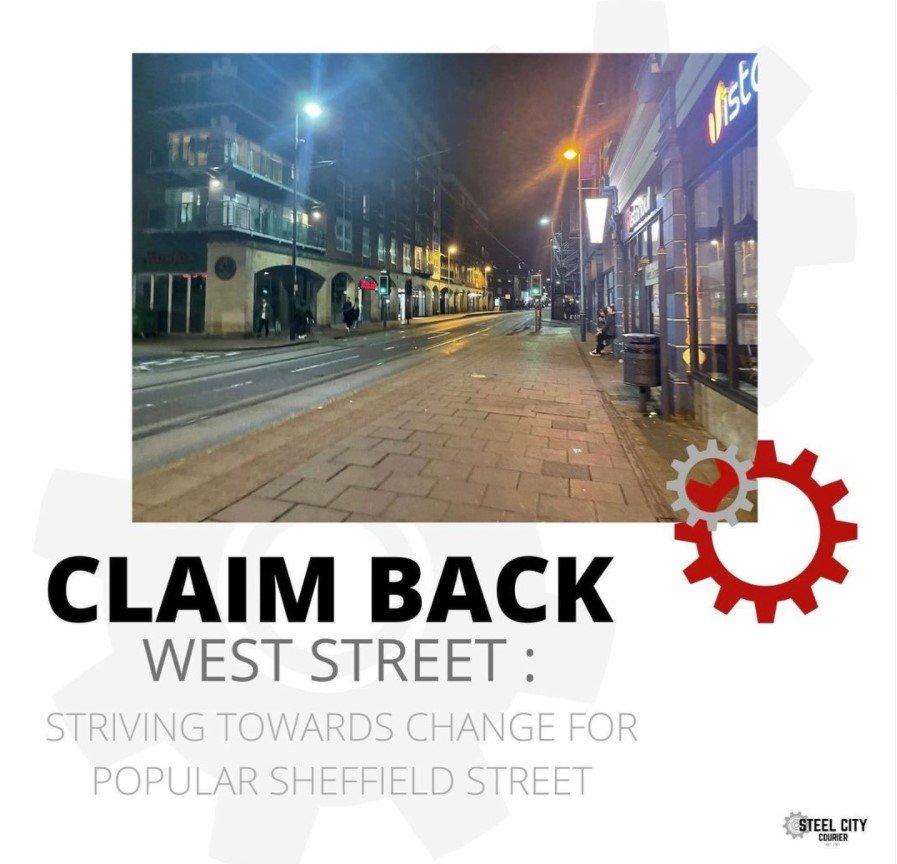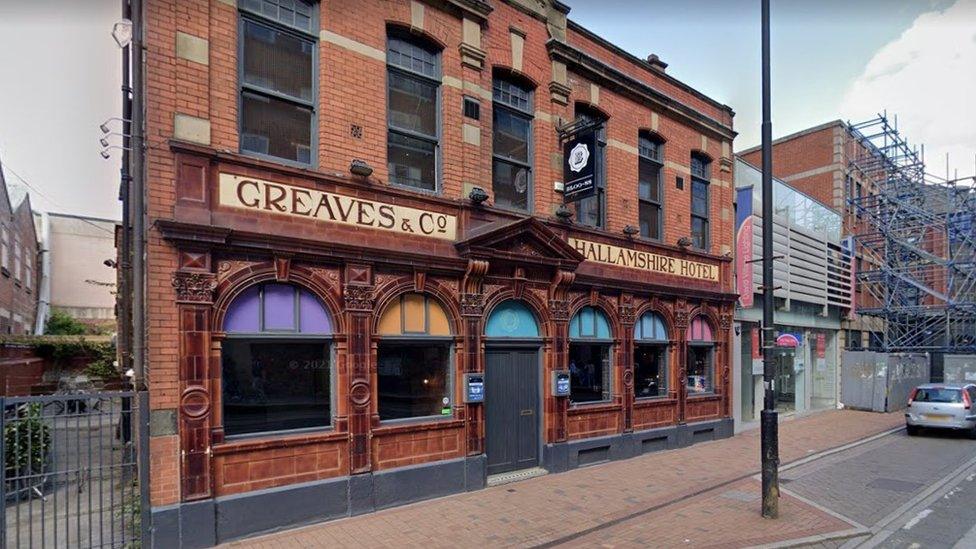Drink spiking: Students want better safety on Sheffield's West Street
- Published

The students' campaign has been backed by police and bars
Students are campaigning for better safety measures on a city centre street that has become "notorious" amid reports of a spate of drink spiking.
One organiser, Hannah Youds, 21, said there had been numerous "horror stories" from people out socialising on West Street in Sheffield.
She said: "It's frightening. There's a general feeling of being unsafe and we want to make our voices heard."
Earlier this month, several students were reportedly spiked on a night out.
It is alleged the students had their drinks spiked, external on the same night at a Sheffield Students' Union venue.
The Night Time Industry Association (NTIA) said it had seen a rise in drink-spiking throughout the UK over recent weeks.

Campaigners say they want West Street to be a place people feel safe
The symptoms of drink spiking are often similar to being drunk, and include slurred speech, dizziness, drowsiness, sickness, headaches, confusion and passing out.
Ms Youds, a University of Sheffield student, said the apparent rise in spiking and women feeling vulnerable had prompted her and four friends to set up the campaign, #claimbackweststreet, external.
"As we've been out speaking to people about how they feel, the feedback has been that West Street is notorious as a place that students don't feel safe," she said.
"We've heard many horror stories about spiking and girls not being helped by bouncers."
The third year journalism student said as well as pushing for bars to have anti-spiking measures, the campaign wanted to see safe areas created in premises and to bring Street Angels to Sheffield.
Their efforts have been backed by South Yorkshire Police and some bars on West Street who have taken action.

Bloo 88 said it had brought in anti-spiking measures
Shaun Williams, assistant manager of Bloo 88 on West Street, said they gave out free testing strips as well as anti-spiking bottle and drinks covers.
"We're 100% around this campaign and we want people to know that if they feel like they have been spiked or need help, we will do what we can for them."
Michael Kill, NTIA chief executive officer, said venue operators had been working with police and local authorities "focusing on safeguarding customers, particularly women at night".
He said measures introduced in some regions included protecting drinks through barrier mechanisms, swab-testing drinks for contamination and searching people.
Meanwhile, a petition calling for compulsory searches at nightclubs has been signed by more than 100,000 people after a number of reported spikings by needle, including one in Nottingham.
In addition, students across the UK are calling for a boycott of nightclubs and bars to highlight the issue of spiking.
Campaign group Girls Night In, which is organising the boycott, has cropped up in dozens of cities, including Leeds.

Follow BBC Yorkshire on Facebook, external, Twitter, external and Instagram, external. Send your story ideas to yorkslincs.news@bbc.co.uk or send video here.